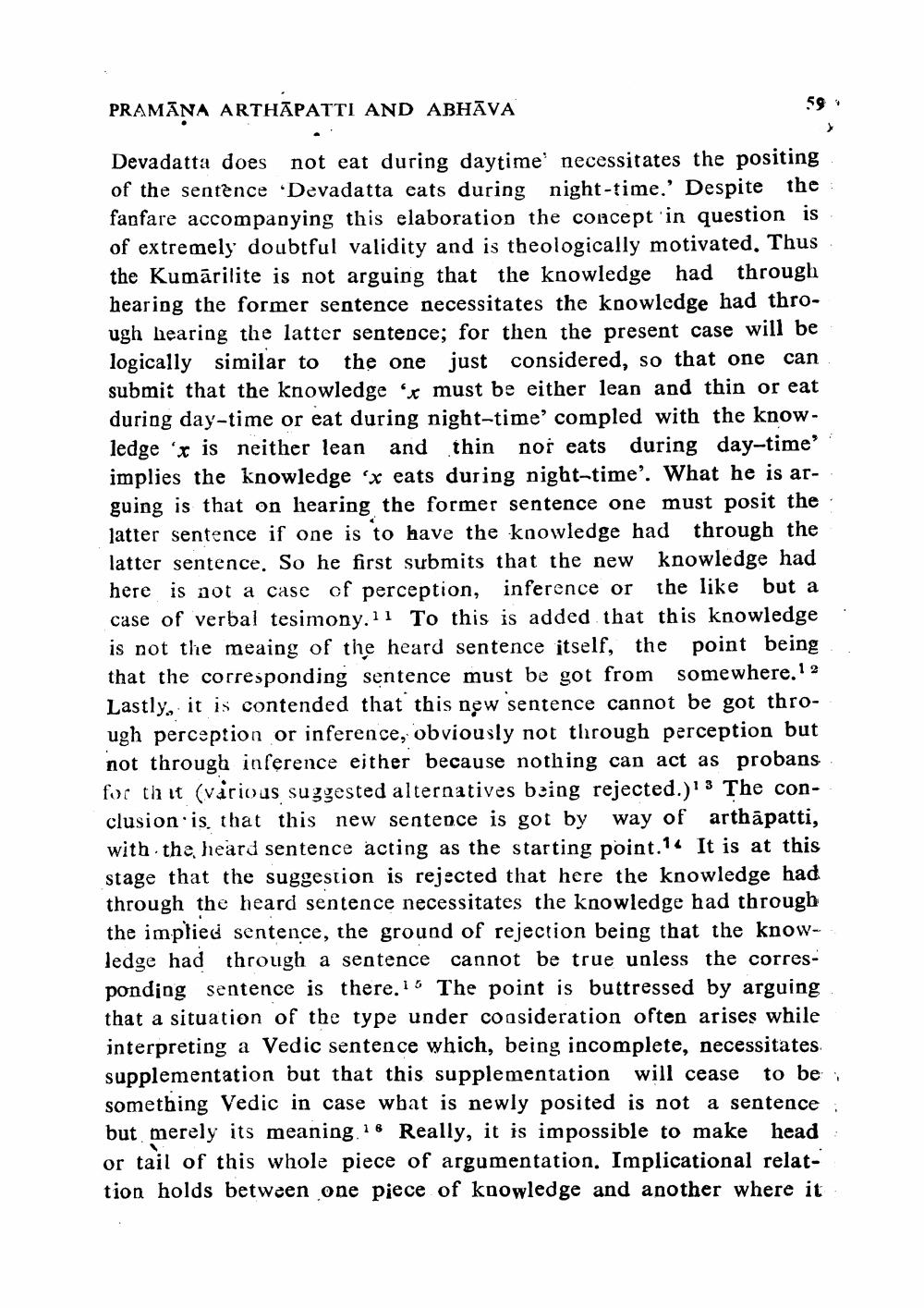________________
PRAMĀNA ARTHĀPATTI AND ABHĀVA
Devadatta does not eat during daytime necessitates the positing of the sentence Devadatta eats during night-time.' Despite the fanfare accompanying this elaboration the concept in question is of extremely doubtful validity and is theologically motivated. Thus the Kumārilite is not arguing that the knowledge had through hearing the former sentence necessitates the knowledge had through hearing the latter sentence; for then the present case will be logically similar to the one just considered, so that one can submit that the knowledge 'x must be either lean and thin or eat during day-time or eat during night-time' compled with the knowledge 'x is neither lean and thin noi eats during day-time': implies the knowledge 'x eats during night-time'. What he is arguing is that on hearing the former sentence one must posit the latter sentence if one is to have the knowledge had through the latter sentence. So he first submits that the new knowledge had here is not a case of perception, inference or the like but a case of verbal tesimony.11 To this is added that this knowledge is not the meaing of the heard sentence itself, the point being that the corresponding sentence must be got from somewhere. 1 2 Lastly, it is contended that this new sentence cannot be got through perception or inference, obviously not through perception but not through inference either because nothing can act as probans for thit (various suggested alternatives being rejected.)13 The conclusion is that this new sentence is got by way of arthāpatti, with the heard sentence acting as the starting point.16 It is at this stage that the suggestion is rejected that here the knowledge had through the heard sentence necessitates the knowledge had through the implied sentence, the ground of rejection being that the knowledge had through a sentence cannot be true unless the corresponding sentence is there. 15 The point is buttressed by arguing that a situation of the type under coasideration often arises while interpreting a Vedic sentence which, being incomplete, necessitates supplementation but that this supplementation will cease to be something Vedic in case wbat is newly posited is not a sentence but merely its meaning. 16 Really, it is impossible to make head: or tail of this whole piece of argumentation. Implicational relattion holds between one piece of knowledge and another where it




